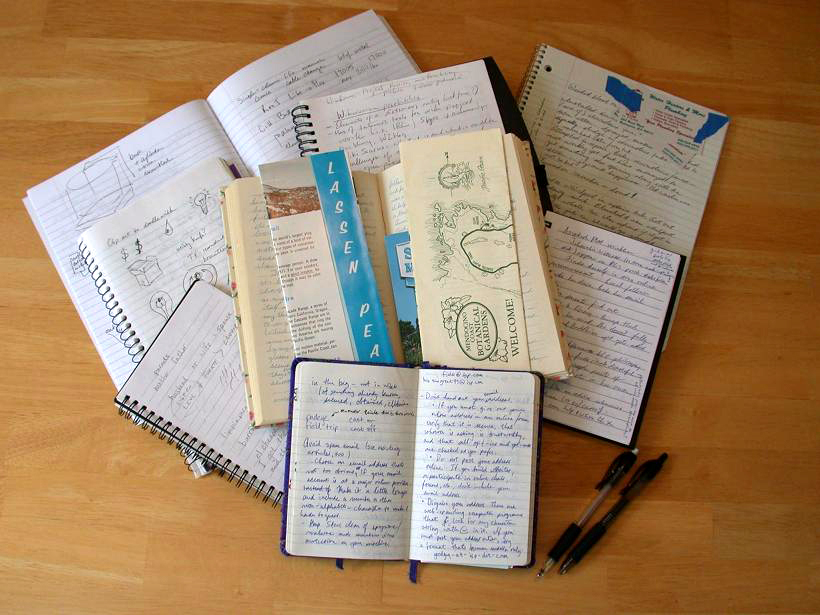 |
| Photo credit: WordRidden on Flickr |
As usual, I'll start by posting the full first 250 excerpt, after which I'll share my overall thoughts, then my redline critique. I encourage you guys to share your own thoughts and critiques in the comments (because I'm one person with one opinion!), as long as it's polite, thoughtful, and constructive. Any rude or mean comments will be unceremoniously deleted.
Let's do this.
Title: SONG OF BLOOD
Genre/Category: Fantasy
"The tavern was filled with pirates of various fashion senses. A gaggle of them roared for refills, sporting offensively garish breeches and egos to match. The older ones slouched in corners, black trench coats pulled up around their grizzled faces, rapiers hanging like dead men from their belts. With her outlandishly feathered hat and high collared coat, Captain Scarlet Rogue was right at home.
She sat in the corner, hands clasped around a mug of ale that, by the look of the tavern, was most certainly watered down. The amber liquid sloshed in her glass as she tipped it back and forth, listening to pirates shout for drinks and pretty barmaids.
One such barmaid had approached her, asking in a reedy voice if that was all she’d be having. Scarlet ignored her until she flounced off to go sit on some drunkard’s lap. She’d been sitting in the same tavern all day, and her hands were clenched around the mug so tightly she didn’t think she could let go if she tried.
Her crimson hair was tied up and shoved under her hat, her revolvers tucked away into her coat. She was no longer the feared Scarlet Rogue, captain of the Vespers, a name that had once struck terror into the hearts of every good-hearted merchant and dirty-mouthed sailor. She was just Scarlet, captain of a ship that hadn’t left port in months."
This is so interesting! I love the characterization of Scarlett and definitely have lots of questions, as a reader. There are also some really nice moments of imagery I enjoyed.
I do think it'd be helpful to condense a bit to get to the part about how her ship hasn't left port in months a little faster, though, because I felt like it went on just a tad too much in places where it'd be more effective to get to the point.But overall this was an enjoyable start.
Now for the line edits!
"The tavern was filled with pirates and Captain Scarlet Rouge was right at homeof various fashion senses. I'm suggesting you move (part of) the last line to the start, for a few reasons. First, starting with the protagonist right away helps better ground readers, who in your original version are left to kind of float around aimlessly until you mention Scarlet. And secondly, the "various fashions senses" bit wasn't really carrying its own weight, meaning that it was vague and didn't really add enough to the sentence that I felt it was worth keeping. A gaggle ofthemprivateers (or another word for pirates) roared for refills, sportingoffensivelygarish breeches and egos to match. The older ones slouched in corners, black trench coats pulled up around their grizzled faces, rapiers hanging like dead men from their belts. I love this image so much! "rapiers hanging like dead men from their belts" like, what powerful imagery! Really, really nicely done.With her outlandishly feathered hat and high collared coat, Captain Scarlet Rogue was right at home.
SheScarlet sat in the corner, hands clasped around a mug of ale that, by the look of the tavern, was most certainly watered down. Nice voice. The amber liquid sloshed in her glass as she tipped it back and forth, listening to pirates shout for drinks and pretty barmaids.
One such barmaidhadapproached her, asking in a reedy voice if that was all she’d be having. Scarlet ignored her until she flounced off to go sit on some drunkard’s lap. I want to encourage you to be careful with the word choice here, because Scarlett is starting to come off as arrogant, like she thinks the barmaid is beneath her. It's not endearing. She’d been sitting in the same tavern all day,andher handswereclenched around the mug so tightly she didn’t think she could let go if she tried.
Her crimson hair was tied up and shoved under her outlandishly feathered hat, her revolvers tucked away into her high-collared coat. Bringing back some of that description I cut earlier. She was no longer the feared Scarlet Rogue, captain of the Vespers, a name that'dSo there are my suggestions! Overall, they're mostly just tightening notes, to help move things a little more quickly and ground the reader right away. I think this was a really strong start to begin with and I'm totally interested—if I saw this in the slush I'd definitely keep reading.hadoncestruck terror into the hearts of every good-hearted merchant and dirty-mouthed sailor. She was just Scarlet, captain of a ship that hadn’t left port in months."
I hope that helps! Thanks for sharing your first 250 with us, Arden!
Twitter-sized bite:
.@Ava_Jae talks grounding the reader, imagery and more in the 39th Fixing the First Page Feature. (Click to tweet)














